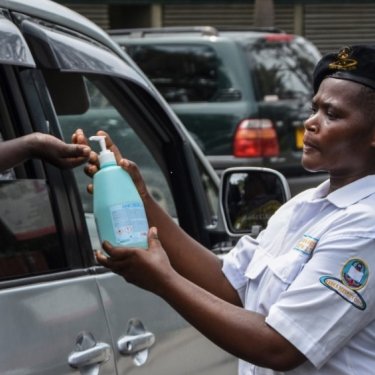Tanzanian media unable to cover Covid-19 epidemic

Reporters Without Borders (RSF) condemns the lack of transparency about the public health situation in Tanzania since the start of the coronavirus epidemic and calls on the authorities to guarantee access to essential information. Press freedom, which has been drastically curtailed for years, must also be guaranteed.
The last time the Tanzanian authorities provided any coronavirus figures was on 29 April, when they reported just over 500 cases and 21 deaths. They then stopped reporting cases and it has been impossible to access official information. “The public is worried about the way the government is handling the crisis because the authorities are not publishing the latest Covid figures,” a Dar es Salaam-based reporter told RFF. An editor confirmed that no figures are being released, whether for cases or deaths. “According to the authorities, no one has the virus so they cannot talk about it,” she added. The journalists who talked to RSF asked not to be identified, underscoring the degree to which the subject is off limits.
“The news blackout that the authorities have orchestrated about the epidemic is such that no one is in a position to learn about the virus’s real impact in Tanzania and the current public health situation,” said Arnaud Froger, the head of RSF’s Africa desk.“The lack of transparency and the refusal to release information are all the more alarming because every effort has been made for years to prevent independently produced information in Tanzania. Instead of targeting the wrong enemy, the president should do everything possible to protect his people in this continuing health crisis by publishing information about the epidemic and ensuring that journalists can work freely.”
The impossibility of accessing state-held information about the health situation is compounded by the government’s extremely repressive policies towards media and journalists that question the government’s handling of the epidemic. Talib Ussi Hamad, a reporter for the Tanzania Daima newspaper, was suspended for six months in April on the government’s orders on the grounds that he referred to a coronavirus patient without the patient’s consent. The Mwananchi newspaper’s website licence was withdrawn for six months, Kwanza Online TV, a local Web TV, was closed for 11 months, and three other media outlets were fined by the Tanzania Communication Regulatory Authority and ordered to issue apologies in connection with their Covid-19 coverage.
In July and August, the government tightened its legislative grip, introducing regulations imposing drastic new curbs on the freedom to inform. It is now forbidden to publish “information with regards to the outbreak of a deadly or contagious disease in the country or elsewhere without the approval of the respective authorities.” Reproducing content from foreign media without prior permission from the government is also forbidden.
President John Magufuli’s reelection last month for a second term was marked by social media cuts that suggest his predatory policies towards the media will continue. Since his original election in 2015, the authorities have arrested many journalists, closed many media and adopted very repressive laws to prevent independent reporting. The authorities have never conducted a serious investigation into the disappearance of Azory Gwanda, a Mwananchi reporter who went missing three years ago. Despite the lack of a proper investigation, a government minister referred to him as having “died” although he later retracted.
Ranked 124th out of 180 countries in RSF's 2020 World Press Freedom Index, Tanzania has fallen a total of 53 places since 2016, more than any other country in recent years.



